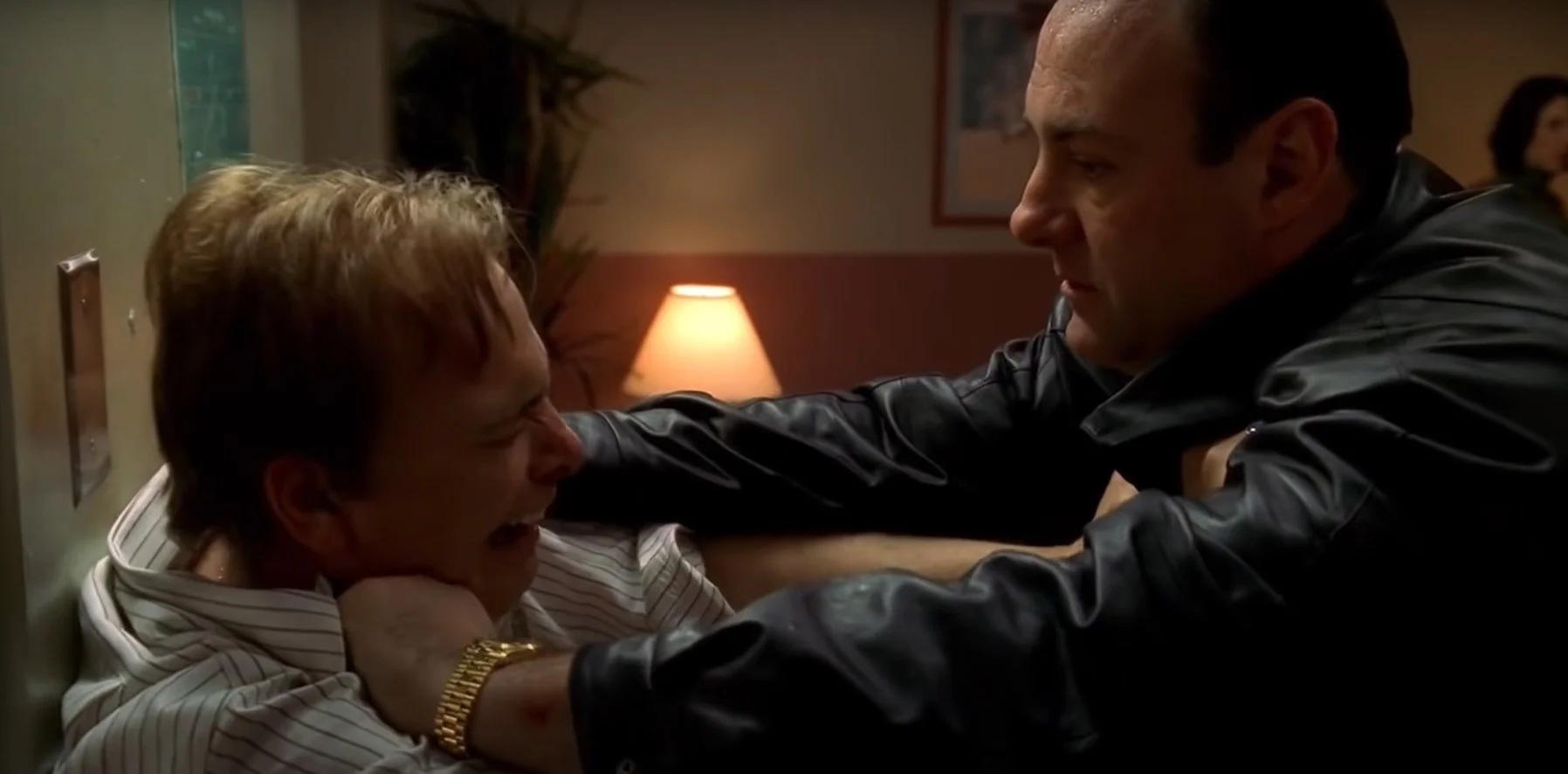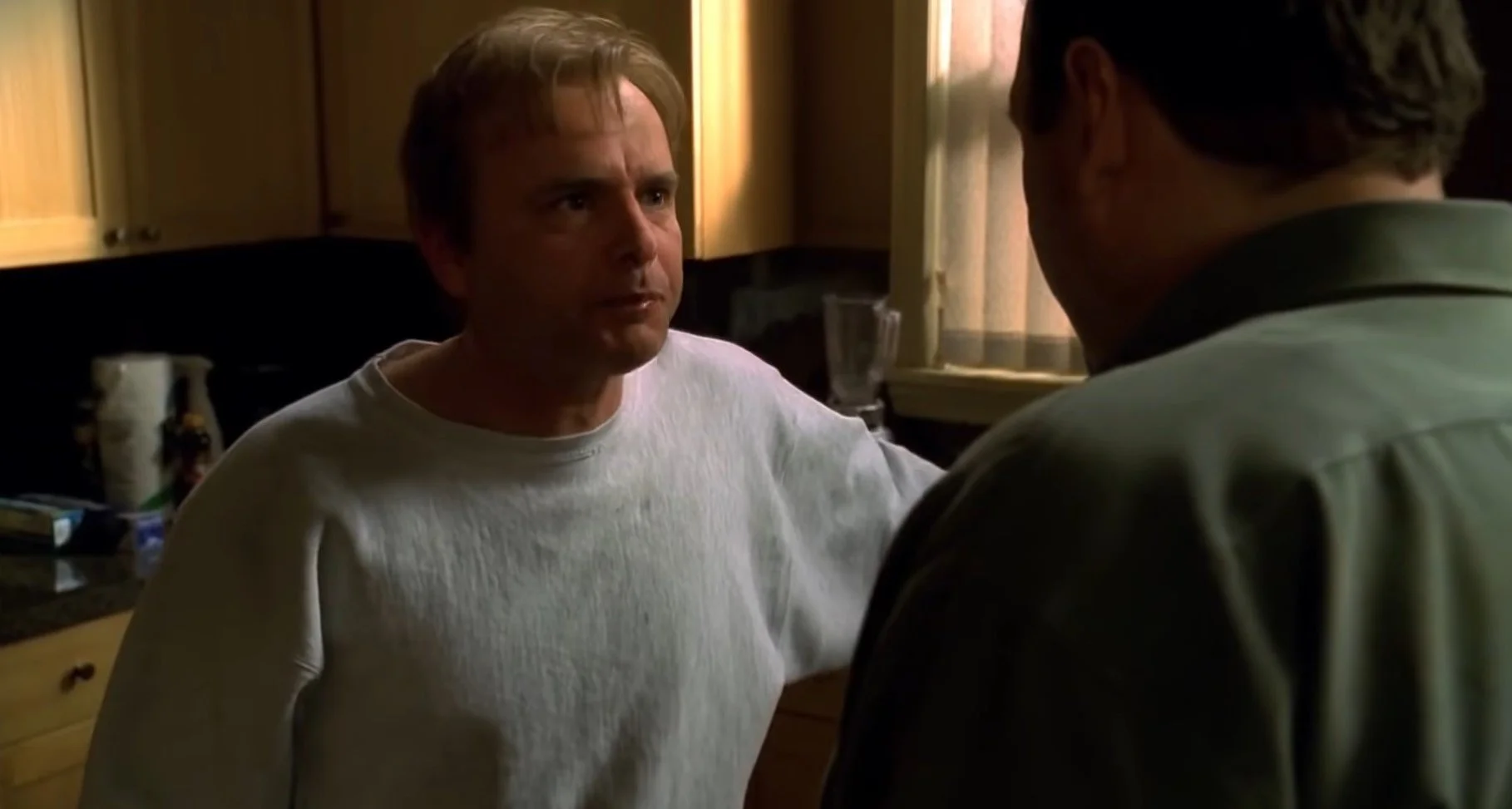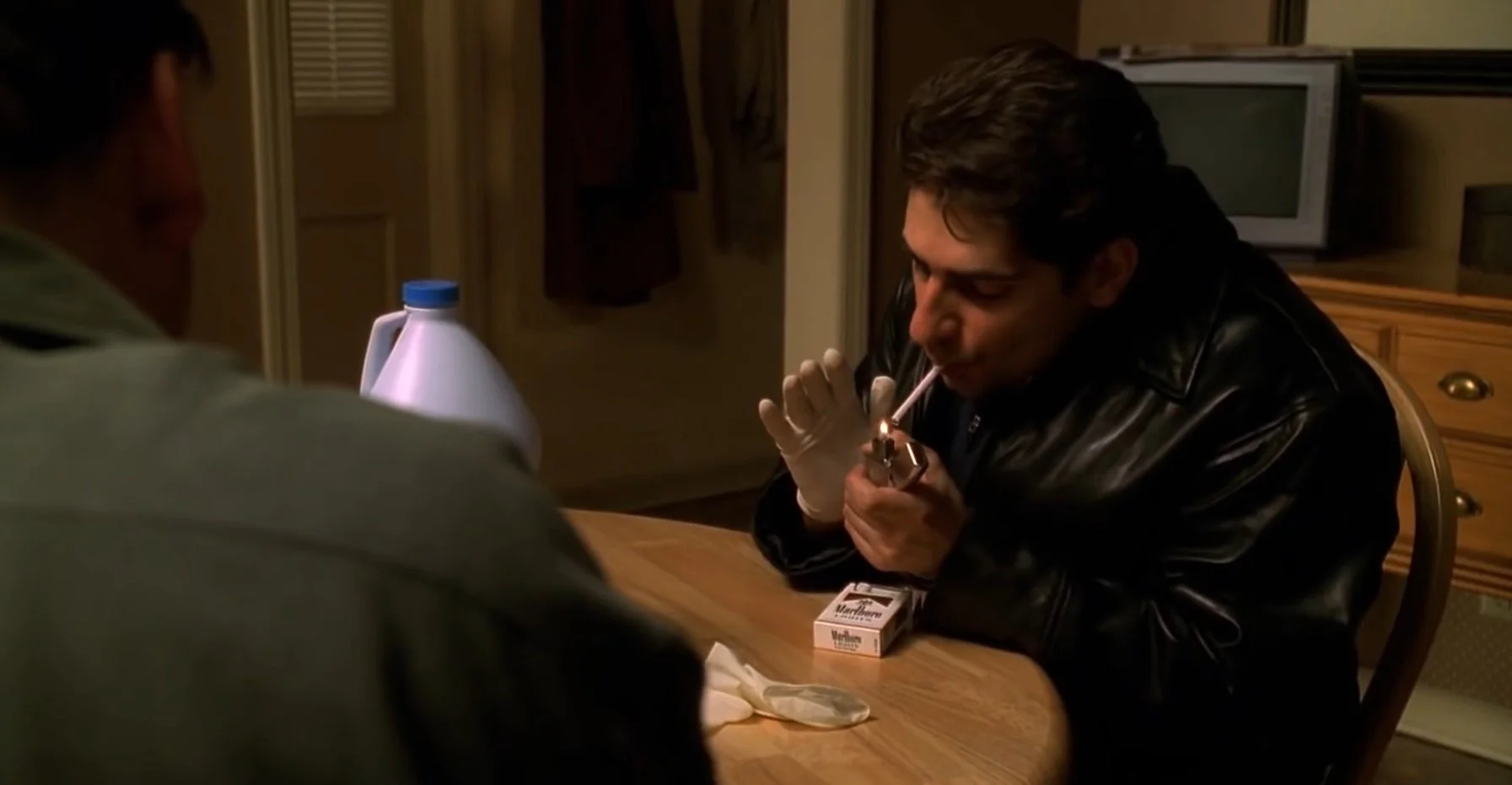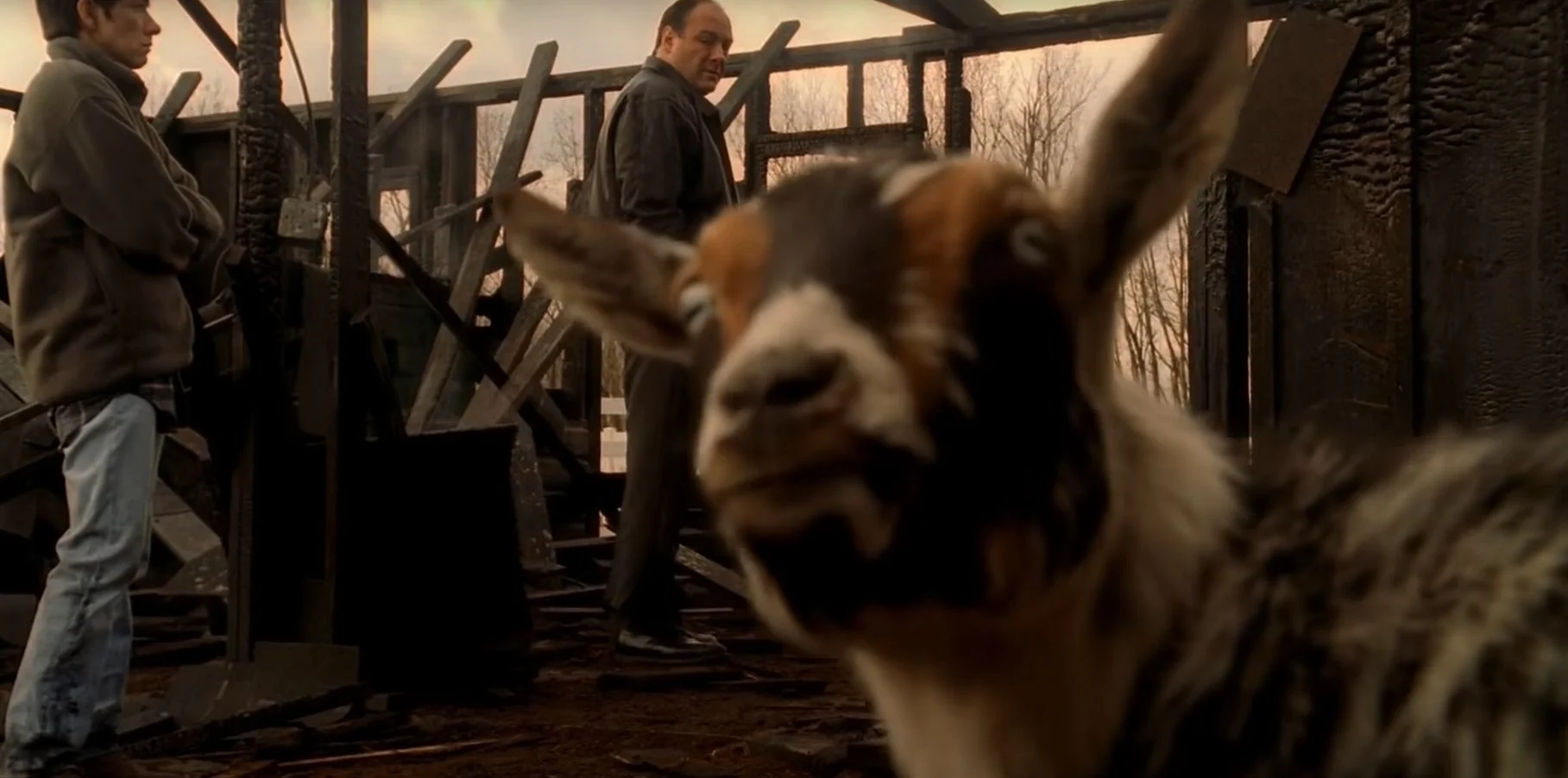An Analysis of the Role of Violence in "The Sopranos”
The Sopranos was never about violence for me. It's the same way I feel about action sequences in movies. The intrigue works best for me not by spectacle or shock, but by intricacy and complexity in a story that unfolds in an engaging way. This is why violence in the Sopranos doesn’t gross me out. It’s not overly explicit or gratuitous. There is meaning for each violent part and there is also immense attention to detail on the decisions of what violence to show on screen and what to keep off screen.
The use of violence as a plot device
Season 4 episode 9 titled “Whoever Did This” will be my main point of reference in this article. It’s an episode with quite a good amount of violence.
Its first instance of violence is truly tragic and it happens to Justin Cifaretto, the teenage son of one of the show's most vial characters, Ralph Cifaretto (often considered the central villain of the series). Justin is shot with an arrow in the upper right chest during a bow-and-arrow-Lord-of-the-Rings-style game.
Ralph’s Son
It is gut wrenching to watch, but it does not feel exploitative. It is complex because it is anti-hero adjacent, in theory. We are watching the worst things happen to the worst possible person (Ralph), and even for him, we feel sadness.
They don’t show the moment the arrow hits Justin. They set up the game showing Justin and his friend outside with the bow and arrow, and how scary-dangerous it is for these two kids, then cut directly to Ralph in the bathtub clipping his toenails. The inference here and meaning, I interpret, is to show that Ralph was being negligent by not supervising them as he should be.
Later in the episode, Ronnie Capozza (Justin’s mother) and Dennis Capozza (Justin’s step-father) speak to Ralph at the hospital. Ronnie tells the doctor, “This is Justin’s biological father. He was supposed to take them to the archery range.”
“They were playing video games. Ronnie, I don’t know what happened,” Ralph says.
She says, “No, nothing’s ever your fault. I should never have let you near him. Nights before he has to go to your house, he can’t sleep!” She also attacks him.
At the beginning of this scene, Tony has to stop Ralph from glaring, very obviously and with terrifying blankness in his gaze, at the other boy who was playing with Justin. The boy who shot the arrow, accidently killing Justin. One can only imagine what Ralph, a vicious, murderous mobster, is thinking about doing to that poor boy.
Ralph’s Demented Baggage
You see the consequences of this violent event and how the consequences will consume the characters involved. Even characters that are not involved, like Tony, have to navigate this extra layer of complexity and emotion that is consuming Ralph and all of his previous, demented baggage. For example, Tony has to break the news that he is dating Ralph’s ex-Goomar and it is much harder to do so now because Ralph is in a state of mourning.
The events become a part of each character's problems because it affects them in some way, and in real life, the repercussions don’t go away when another episode starts. Everybody in the story has to deal with it.
The actual violence they do show in this scene is the arrow in the upper right chest of Justin as he lays on the ground struggling to breath, after the camera follows Ralph from the bath, where he is visibly annoyed because of being interrupted by his housekeeper screaming for him to come help, to when Ralph sprints outside in a panic to the grass in his bathrobe where he finds Justin is bleeding out, pierced by an arrow that hit him from the sky.
Broader Themes and Motifs of Violence in "The Sopranos"
Used to comment on a variety of larger themes and motifs throughout the show, violence is not limited to physical acts, but also includes psychological manipulation and power struggles. They use violence to intimidate, assert and maintain power, and to challenge the power dynamics of existing hierarchies. The characters also use violence to protect people and things that they love.
For Tony, family is everything to him so if any threat arises he will cross any moral line to neutralize it.
This leads me to the most interesting bits of meaning that the Sopranos puts out to the world via violence on our TV screens…
Using Violence to Investigate Questions of Morality
The Sopranos utilizes violence as a narrative device to examine the moral codes and beliefs of its characters. This often results in darkly comedic moments due to the absurdity of the main characters' reasoning.
In "Whoever Did This," Tony lectures Christopher about the dangers of drug addiction, while the two of them are disposing of the body of a person he killed with his bare hands in a brutal fight to the death hours earlier (the real Soprano fans know I left out a spoiler of who Tony killed here and whose body it is they are “disappearing”. Really, if you’re this late to the Sopranos then spoilers should be on you–but I digress).
This hilarious and disturbing scene highlights the show's exploration of moral ambiguity and the consequences of violence. Characters are constantly finding cheap justifications for their actions.
It’s genius because you can understand Tony’s logic of rationalizing himself as a good man. He’s dead wrong, but if he does rationalize himself as an overall good man you can understand how he worked out this justification in his mind.
He understands the nuances of morality, as he is always presented as a curious and intelligent person who understands and is interested in how people work. He has witnessed Ralph murder an innocent young woman. He has seen how manipulative he is when it comes to violence toward people who owe him money. He’s heard his vile sense of humor. He is fairly certain that he burned their shared horse alive for the insurance money. Ralph is pretty much the red dude with horns in the bible, so murdering him is not that bad. He can live with it. In his mind.
But what about the countless atrocities that Tony himself has committed that are equally as evil as Ralphs atrocities. Everybody has their justifications for themselves.
The Sopranos delves into the blurred lines of morality and the justifications used by characters to justify their actions. The audience is left questioning the morality of Tony's choices, as well as the impact of his criminal activities on his family and those around him.
What did we learn?
Ultimately, "The Sopranos" raises important questions about the price of power and the true cost of living a life of crime. Through the use of violence, the characters are challenged to confront the consequences of their actions and the impact they have on others. Often, they choose to continue on a spiraling path rather than actually confronting the moral repercussions of their actions.
This is particularly evident in Tony's relationship with his family and the trauma they experience as a result of his criminal activities. The show also highlights the toxic qualities present in characters like Ralph, who displays a complete absence of regard for living things and an intense selfish nature, which spawns harmful infections into the people around him.
The Sopranos is rich in compelling meanings and devices that nurture the story seamlessly, but the use of violence adds so much tension and paints a complex picture of the world they live in and the moral dilemmas that come with it. The show effectively illustrates the impact of violence on both the individuals involved and the people around them, making it impactful and memorable.
What do you think?




